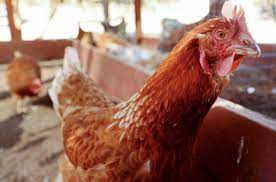
As bird flu, or avian influenza, continues to spread across various regions, experts are raising concerns that the United States may be repeating the same mistakes made during the COVID-19 pandemic. The spread of the virus among poultry and wild birds has led to increasing worries about the potential for a zoonotic jump to humans. Health professionals and scientists are calling for immediate and robust measures to prevent another public health crisis.
See Here:
Concerns Over Lack of Preparedness
Deja Vu of Early COVID-19 Response
Public health experts are drawing parallels between the current handling of bird flu and the early stages of the COVID-19 pandemic. Just as with COVID-19, there is a growing fear that the slow and fragmented response to bird flu could allow the virus to spread unchecked. Early warnings from scientists are reportedly being downplayed, and there is a lack of coordinated national strategy, mirroring the initial missteps in the COVID-19 response that contributed to its rapid spread.
Insufficient Monitoring and Surveillance
One of the key concerns is the lack of comprehensive monitoring and surveillance of the bird flu outbreak. Experts warn that without a robust system to track the virus’s spread among birds and potential human cases, it will be difficult to contain the outbreak. The decentralized approach and underfunded public health infrastructure are seen as major obstacles in effectively managing the threat. Experts are urging for enhanced surveillance, particularly in areas where poultry farming is prevalent.
The Risk of Zoonotic Transmission
Potential Human Health Threat
While bird flu primarily affects birds, there is a significant concern about the virus mutating or combining with human flu viruses, which could lead to a new and potentially more dangerous strain. The possibility of zoonotic transmission—where the virus jumps from animals to humans—poses a serious threat. The World Health Organization and other global health bodies have warned that such an event could lead to a new pandemic if not managed properly.
Comparison to Previous Outbreaks
The current bird flu situation is being compared to previous outbreaks of zoonotic diseases, such as SARS, MERS, and COVID-19. In each case, the lack of early intervention and preparedness led to widespread transmission and significant human and economic costs. Health experts emphasize that the lessons from these outbreaks should guide the response to bird flu, with a focus on prevention, early detection, and rapid response.
Calls for Stronger Preventive Measures
Need for a Proactive Approach
Experts are advocating for a more proactive approach to handling the bird flu outbreak. This includes strengthening biosecurity measures on farms, increasing testing and monitoring of poultry, and ensuring that there are adequate resources for public health responses. There is also a call for greater transparency and communication between government agencies, scientists, and the public to ensure that information is shared quickly and accurately.
Vaccination and Research Initiatives
In addition to immediate preventive measures, there is a push for accelerating research into vaccines and treatments for bird flu. While vaccines for poultry are available, there is a need for updated vaccines that can address the specific strains currently circulating. Furthermore, research into potential human vaccines should be prioritized to prepare for any potential crossover of the virus into the human population.
Learning from Past Mistakes
Addressing Systemic Issues
The repeated warnings from experts highlight the systemic issues that have plagued public health responses in the past. The fragmented and underfunded health systems, lack of preparedness, and slow governmental response are being called out as areas that need urgent reform. Experts argue that addressing these issues now is crucial to avoiding the catastrophic consequences seen during the COVID-19 pandemic.
Building a Resilient Health System
Building a more resilient health system that can quickly and effectively respond to emerging infectious diseases is essential. This includes investing in public health infrastructure, ensuring adequate funding for research and development, and fostering international collaboration. The lessons learned from COVID-19 should serve as a blueprint for strengthening the US’s ability to handle future outbreaks, including the current bird flu threat.
Conclusion
As bird flu continues to spread, the United States faces the risk of repeating the same mistakes that exacerbated the COVID-19 pandemic. Experts are sounding the alarm, urging for immediate action to prevent the virus from becoming a significant human health threat. The call for a more proactive and coordinated response highlights the need to learn from past experiences and to build a stronger, more resilient public health system capable of managing emerging infectious diseases.





